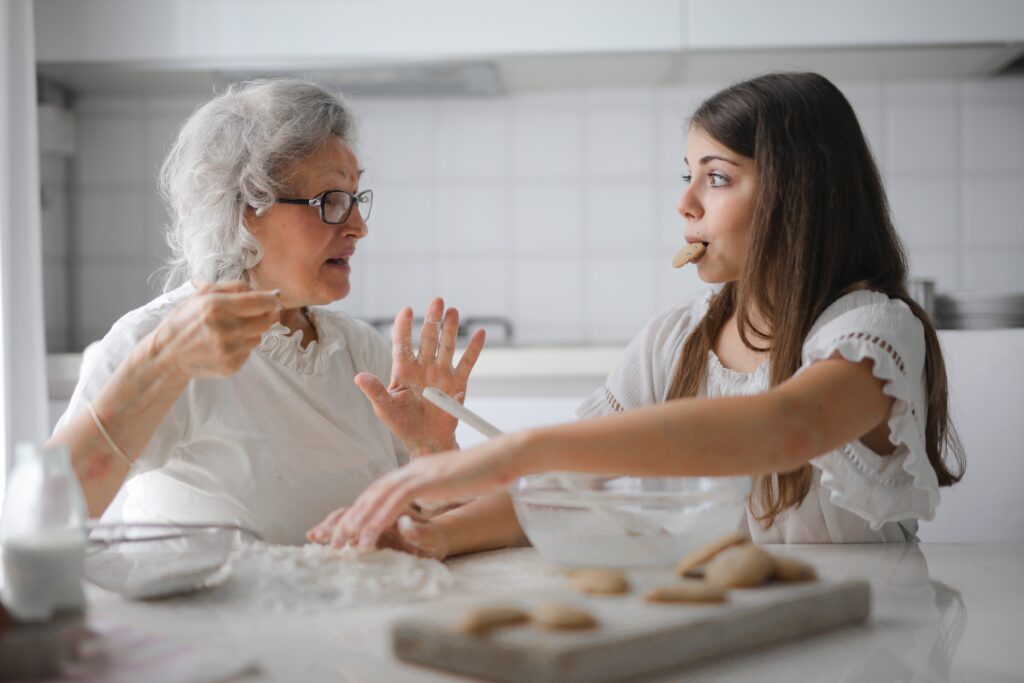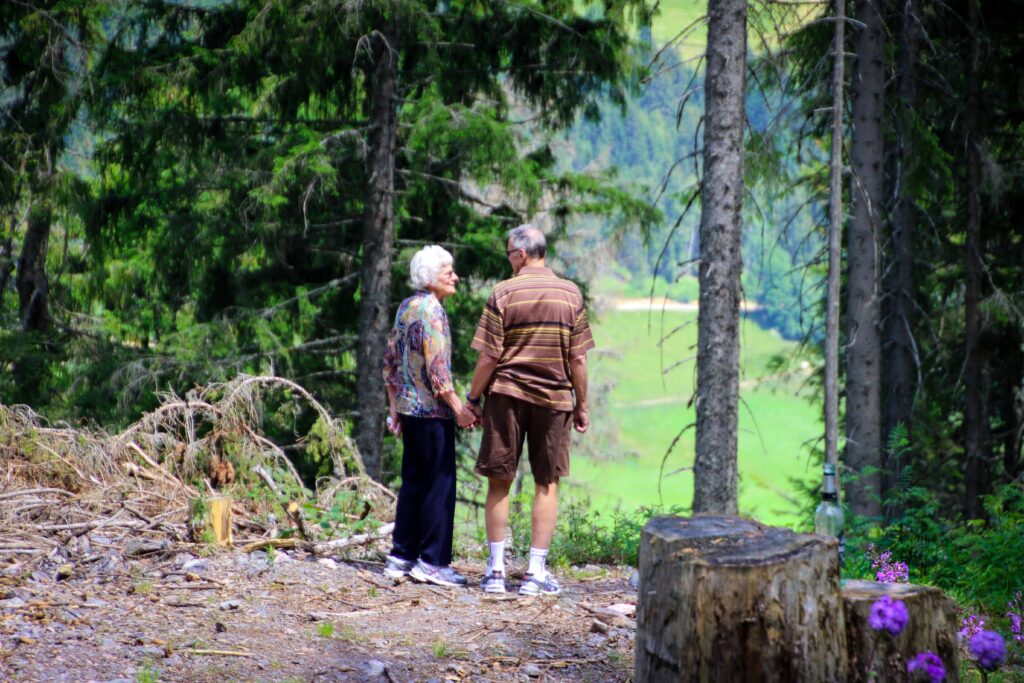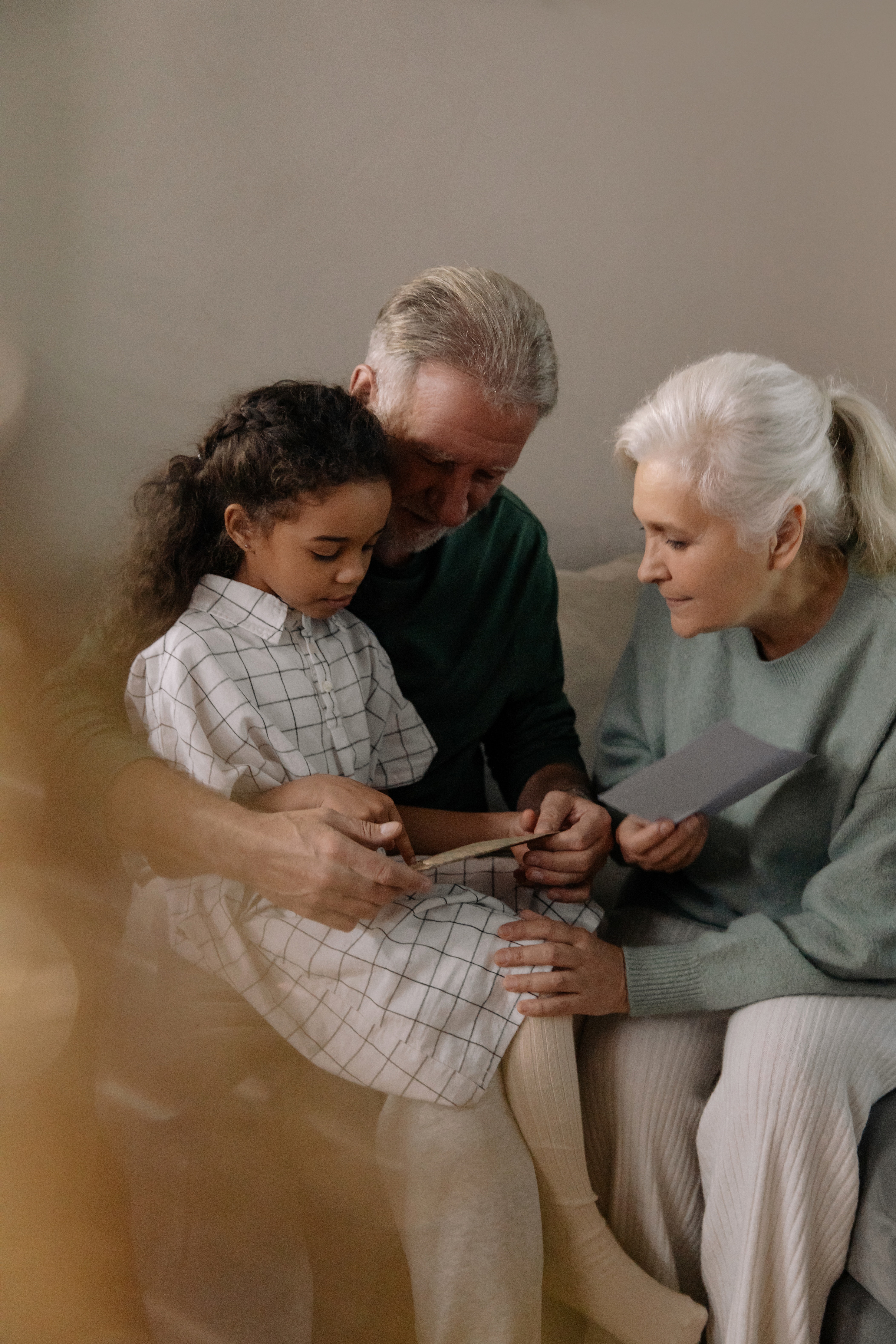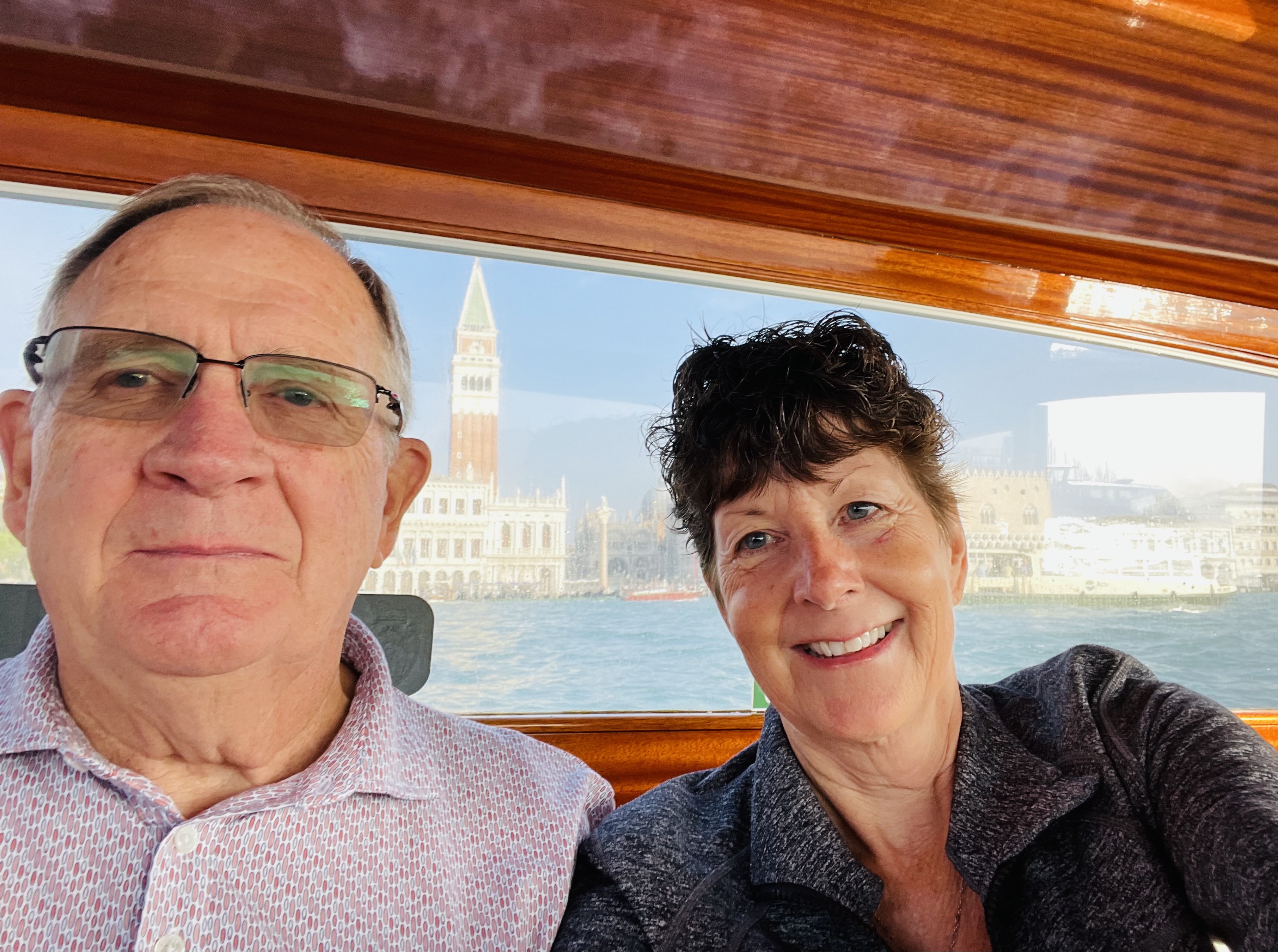As we journey through the stages of life, one intriguing phenomenon we often encounter is the curious personality changes of older ages. I observed this with my parents as they moved through their 60’s into their 70’s. It’s fascinating to witness how individuals evolve and transform, unveiling new facets of their character and perspectives with each passing year. It is very exciting and so unexpected.
What causes these shifts? Is it a result of accumulated wisdom or the influence of changing circumstances? Does all that wisdom we’ve gathered up over the years finally catch up and spill out of us? Today, we will delve into the intricate complexities of these personality transformations, exploring the factors that contribute to them and the impact they can have on individuals and their relationships. Get ready to embark on a journey examining the nature of personality development in later stages of life.
The Impact of Aging on Personality

As we move through our life, it’s natural for our personalities to evolve and transform. The process of aging brings about a series of changes in various aspects of our lives, including our personalities. Here are just a few I’ve observed in my life experiences.
Changes in Emotional Stability
One of the noticeable changes that often occur as we age is a shift in emotional stability. As we grow older, we tend to become more emotionally resilient and experience a decrease in negative emotional reactions. This newfound stability allows us to navigate life’s ups and downs with greater ease and grace. We find ourselves more able to let go of any toxic relationships we may have had, realizing that we simply don’t need those individuals in our lives.
Shifts in Openness to Experience
Openness to new experiences is a trait that can change with age. In our younger years, we may be more inclined to seek novelty, adventure, and exploration. However, as we age, our openness to experience may change, and we may become more driven to examine those “Bucket List” dreams we’ve yet to experience. Why not? This shift can be attributed to a desire to make those dreams a reality while we are still able to enjoy doing them.

Alterations in Agreeableness
Agreeableness, which refers to our tendency to be compassionate, forgiving, and cooperative, can also undergo changes as we age. Older individuals often exhibit increased levels of agreeableness, showing a greater willingness to compromise and a heightened sense of empathy. This change can be attributed to a deeper understanding of the complexities of human relationships and a desire for more harmonious interactions.
Variations in Conscientiousness
Conscientiousness, characterized by traits such as organization, dependability, and self-discipline, may also be subject to variations as we age. While some individuals may maintain their high levels of conscientiousness throughout their lives, others may experience a decline in this trait. This decline can be attributed to a shift in priorities, with a greater emphasis on enjoying life and embracing spontaneity.
Transformations in Extraversion
Extraversion, encompassing traits such as sociability, assertiveness, and enthusiasm, can also undergo changes as we age. While some individuals may continue to exhibit high levels of extraversion, others may become more introverted and prefer solitude. This shift is often associated with a desire for introspection, self-reflection, and a focus on meaningful relationships.
Aging brings about notable changes in our personalities. These changes include shifts in emotional stability, openness to experience, agreeableness, conscientiousness, and extraversion. While these changes may vary from person to person, they are a natural part of the aging process and contribute to our individual growth and development.

Common Personality Changes in Older Adults
As individuals age, we often experience various changes in our personalities. While these changes can be a natural part of the aging process, it’s important to understand and address them appropriately. Let’s explore some common personality changes in older adults, including increased emotional well-being, enhanced wisdom and perspective, decreased stress and anxiety, heightened gratitude and appreciation, and decreased sensation seeking.
Increased Emotional Well-being
One interesting personality change that older adults often experience is an increase in emotional well-being. As we age, we may find ourselves feeling more content, satisfied, and emotionally stable. This shift can be attributed to a combination of factors, including a better understanding of oneself, improved coping mechanisms, and a greater acceptance of life’s ups and downs. Older adults may also prioritize our emotional well-being more, focusing on activities and relationships that bring us joy and fulfillment.
Enhanced Wisdom and Perspective

With age comes wisdom and a broader perspective on life. Older adults have accumulated a wealth of knowledge and life experiences that contribute to our enhanced wisdom. We have a deeper understanding of what truly matters in life and are often able to offer valuable insights and advice to others. This increased wisdom and perspective can positively impact their relationships and interactions with others, as they bring a sense of maturity and understanding to various situations.
Decreased Stress and Anxiety
Another noteworthy personality change in older adults is a decrease in stress and anxiety levels. As individuals age, we may become less bothered by minor stressors and more adept at managing challenging situations. Older adults have often learned effective coping mechanisms throughout their lives, allowing them to approach stressors with a calmer mindset. We may also have a better sense of perspective, recognizing that many stressors are temporary or inconsequential in the grand scheme of things.
Heightened Gratitude and Appreciation
Older adults frequently have a heightened sense of gratitude and appreciation for the simple joys in life. We understand the fleeting nature of time and may have a greater appreciation for the present moment and the people around us. This shift in mindset can lead to a more positive outlook on life and increased satisfaction with one’s circumstances. Older adults may find joy in everyday activities, cherish meaningful relationships, and express gratitude for the experiences and opportunities we have had.

Decreased Sensation Seeking
As we age, we often exhibit a decreased desire for novelty and being in the limelight. Older adults tend to prioritize stability, familiarity, and routine in our lives. We may find comfort in familiar activities, environments, and relationships. This change in personality can be attributed to a decreased need for stimulation or a preference for more predictable and secure experiences.
Personality changes in older adults are a natural part of the aging process. These changes can bring about increased emotional well-being, enhanced wisdom and perspective, decreased stress and anxiety, heightened gratitude and appreciation, and decreased sensation seeking. Understanding and embracing these changes can pave the way for a fulfilling and enriching journey through the later stages of life.
Coping Strategies for Dealing with Personality Changes
As we age, we may experience various changes in our personality. These changes can be challenging to navigate for both the older people themselves and their loved ones. Here are some effective coping strategies that can help manage and adapt to these changes. By engaging in regular physical activity, cultivating social connections, and finding meaning and purpose, seniors can better cope with personality changes and maintain a fulfilling life.
Engaging in Regular Physical Activity
Regular physical activity is not only beneficial for maintaining physical health but can also have a positive impact on mental well-being. Exercise releases endorphins, which can improve mood and reduce symptoms of anxiety and depression. Encourage older adults to engage in activities such as walking, swimming, or working out with weights. Even moderate exercise for 30 minutes a day can make a significant difference in managing personality changes.

Cultivating Social Connections
Social connections play a vital role in addressing personality changes in our lives. Loneliness and isolation can exacerbate feelings of confusion, frustration, and sadness. Encourage seniors to participate in social activities, join clubs or groups, or even volunteer in their community. By fostering meaningful connections, we can establish a support system and maintain a sense of purpose and belonging.
Finding Meaning and Purpose
Finding meaning and purpose in life is essential for individuals of all ages, including older adults experiencing personality changes. Encourage seniors to explore new hobbies, set goals, or engage in activities that bring us joy and fulfillment. Whether it’s pursuing a lifelong passion, volunteering, or spending time with loved ones, finding meaning and purpose can help us navigate personality changes with a positive outlook.

The curious personality changes that occur as we age are a fascinating aspect of the human experience. As we grow older, we undergo a transformation that is influenced by a variety of factors, including biological, psychological, and environmental. It is important to recognize and embrace these changes, as they can bring about new perspectives, wisdom, and personal growth. Whether it is a newfound sense of self-confidence, a shift in priorities, or a greater appreciation for life’s simple pleasures, these changes can enrich our lives in ways we never imagined. So, let us embrace the curious personality changes that come with age and take advantage of the opportunity to continue evolving and discovering ourselves.





2 responses to “The Astonishing Transformation of Personality as We Grow Older”
Again, you are spot on! We just returned from the Weiner Roast, Lynch family reunion, in Oklahoma. Richard’s dad was one of 12 children and his Aunt Edna, our family historian, shared many of your observations. She would ‘call it as I see it’ cuz she figures not that much time left.
Oh Nancy…that is great that you guys still get together regularly. It’s so important for those stories and traditions to be passed down the generations.